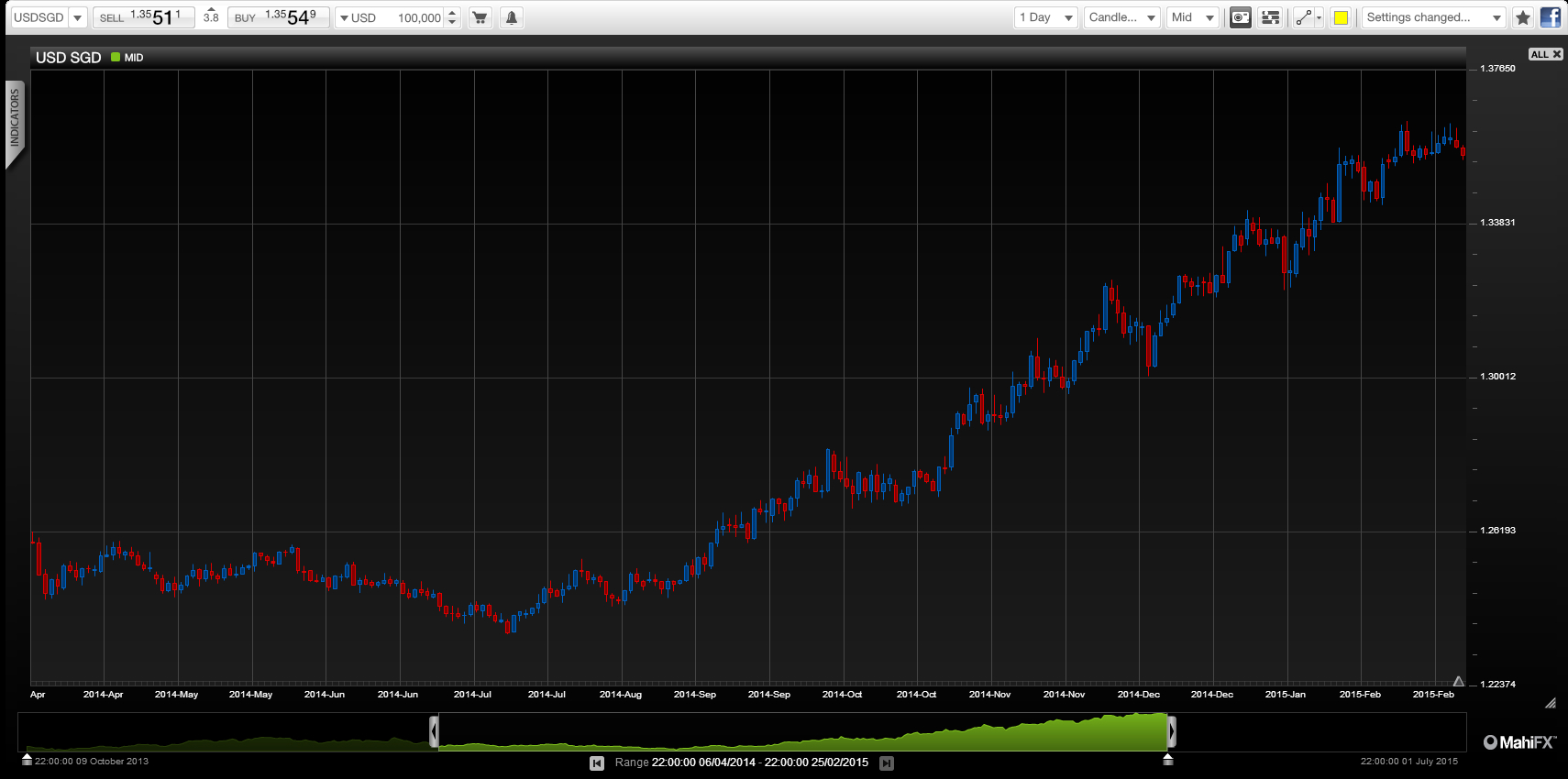Could China's CNY be the next domino to fall in the increasingly aggressive efforts by central banks to devalue their currencies? The People's Bank of China holds considerable sway in the forex market and if it were to follow other Asian central banks an all out regional currency war could swiftly follow.
The Eurozone, Japan and now Sweden all have quantitative easing programmes. Across Asia central banks have been cutting interest rates partly in response to Japan's aggressive devaluation policies.
If China were to join the fray other Asian central banks are likely to respond very quickly -- possibly even going as far imposing negative interest rates. If Europe is anything to go by, the ECB's soon to start QE programme has seen Switzerland, Sweden and Denmark instigate negative interest rates. Even the Bank of England has left open the possibility of lowering its base rate from 0.5%.
Meanwhile, the CNY has been one of the best-performing currencies in the world, largely thanks to its loose peg with the soaring USD. However, inflation pressures are cooling, the pace of growth is slowing and some exporters are struggling to remain competitive. Within China there are calls for a weaker currency. However, it is by no means certain that China will pursue such a policy.
Fate of USD/SGD partly in the hands of the People's Bank of China

5 Reasons for China not to devalue CNY
- Risk of trade war and confrontation with major trade partners, particularly US.
- Undermine China's objectives of making CNY a global reserve currency.
- Threaten viability of Chinese companies, which have $1trillion in foreign, mostly USD borrowings.
- Could spur big capital outflows out of the country further weakening the economy.
- Trying to rebalance towards a consumer driven economy to rely less on investment and exports.
Indeed, US and Chinese policy of allowing their currencies to appreciate is a major factor stopping an all out currency war from taking place, which would quickly degenerate into trade sanctions being imposed across the world. The pair represents the world's two largest economies and their influence on the global economy is enormous.
Nonetheless, should USD's rise continue unabated, the PBOC could well look to stop CNY rising in tandem. The stronger USD becomes, the more likely China will act. At the moment the most likely action by the Chinese authorities is to ensure CNY lags future USD's gains - this has actually been happening since January 2014.
The PBOC could give more prominence to weaker currencies such as EUR and JPY in terms of pegging CNY. Or it could give forex markets a bigger role in setting the CNY's exchange rate. In that case the move would very likely be downwards as there are signs that PBOC has been supporting CNY.
Generally speaking Chinese policy makers tend to prefer gradual changes in exchange rate policy, rather than unleashing sudden shock moves in the way Switzerland has done in recent years.
However, if China did decide to aggressively devalue CNY – the spill over would quickly hit other crosses such as USD/SGD, USD/KRW, USD/TWD and maybe even USD/JPY with USD rallying hard against them. Even USD/HKD could become re-pegged at a lower level.
By Justin Pugsley, Markets Analyst MahiFX
